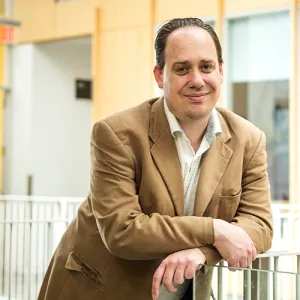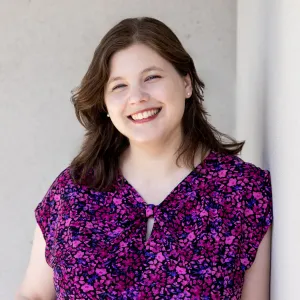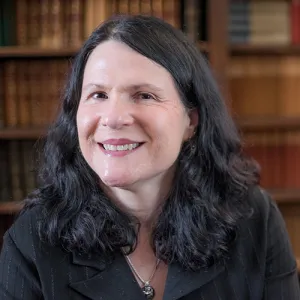
Lindos, Rhodes
Classical Studies
Classics is the study of ancient Greek and Roman civilization, which laid the foundation of the western tradition in literature, philosophy, history, art, science and mathematics. Classics is thus not confined to one field or method, but has always been inherently interdisciplinary. Classics students spend most of their time reading Greek and Latin texts in the original languages, but they can also take courses in English translation in a variety of disciplines in order to get a broader, interdisciplinary perspective. Classics makes a dynamic and rewarding stand alone major, but it can be (and often is) paired with a second major.
Requirements & Courses
Goals for Majors in Classical Studies
The Department of Classical Languages and Literatures regards its principal mission as instruction of students in the languages and literatures of ancient Greece and Rome. We believe that the study of Greek and Latin provides students with a rigorous intellectual training that is transferable to other areas of learning and life. We practice the deep study of language on texts—literary, historical and philosophical—that we admire for the directness and vigor with which they confront central issues of the human condition: love and death, freedom and tyranny, justice and injustice. A sustained confrontation with classical texts not only heightens a student’s sensitivity to literature and involves her in a valuable cultural odyssey, but also prepares her for a life of thoughtful and engaged citizenship in the world of the 21st century.
Students majoring in classics or classical studies should be able to:
- Translate with accuracy and understanding Latin and/or Greek texts from a variety of historical periods and genres.
- Appreciate literary texts (epic, tragedy, elegy, oratory, history or philosophy) in relation to their historical frameworks, both diachronic (texts in dialogue with one another across a literary tradition) and synchronic (texts responding to specific historical conditions).
- Have a working knowledge of the basic tools and resources, both print and electronic, for conducting research about ancient Greek and Roman culture.
- Write clear, cogent interpretive arguments that demonstrate an ability to evaluate and engage critically with both primary sources and secondary literature.
- Communicate ideas clearly and effectively in oral argument.
- Develop an historical awareness of the enduring influence of the classics in the arts and culture of subsequent periods up to the present day.
Classical Studies Major
Requirements
Nine courses
- Four courses in the Greek or Latin languages
- Two courses at any level
- Two courses at or above the intermediate level
- At least two courses chosen from classics in translation in classics or First-Year Seminars
- At least two courses chosen from archaeology, art history, world literatures, government, ancient history, philosophy or religion, in accordance with the interests of the student and in consultation with the adviser. With the approval of the adviser, courses in other departments and programs may count toward the major.
Classics Major
Requirements
Nine language courses
- At least two courses in the Greek language at any level
- At least two courses in the Latin language at any level
- Six courses in Greek or Latin at or above the intermediate level
- One classics in translation course in classics or First-Year Seminars may be substituted for one language course at the discretion of the student and with the approval of the adviser.
Greek Major
Requirements
Nine language courses
- Three courses in the Greek language at any level
- Six courses in the Greek language at or above the intermediate level
- One classics in translation course in classics or First-Year Seminars may be substituted for one language course at the discretion of the student and with the approval of the adviser.
Latin Major
Requirements
Nine language courses
- Three courses in the Latin language at any level
- Six courses in the Latin Language at or above the intermediate level
- One classics in translation course in classics or First-Year Seminars may be substituted for one language course at the discretion of the student and with the approval of the adviser.
Honors
Please consult the director of honors or the departmental website for specific requirements and application procedures.
Classics Minor
Requirements
Six courses (24 credits)
- Two courses in the Greek language at any level
- Two courses in the Latin language at any level
- Two courses in the Greek or Latin languages at or above the intermediate level
Greek Minor
Requirements
Six courses (24 credits)
- Two courses courses in the Greek language at any level
- At least two courses in the Greek language at or above the intermediate level
- At least one course from Greek history, art, ancient philosophy, ancient political theory, ancient religion or classics in translation
Latin Minor
Requirements
Six courses (24 credits)
- Two courses courses in the Latin language at any level
- At least two courses in the Latin language at or above the intermediate level
- At least one course from Roman history, art, ancient philosophy, ancient political theory, ancient religion or classics in translation
Classics Courses
Students planning to major in classics are advised to take relevant courses in other departments, such as art, English, history, philosophy and modern foreign languages.
Credit is not granted for the first semester of an introductory language course unless the second semester is completed successfully. Courses for the major may not be taken S/U.
CLS 217/ ARH 217 Greek Art and Archaeology (4 Credits)
Offered as CLS 217 and ARH 217. This course is a contextual examination of the art and architecture of Ancient Greece, from the end of the Bronze Age through the domination of Greece by Rome (ca. 1100-168 BCE) and handles an array of settlements, cemeteries and ritual sites. It tracks the development of the Greek city-state and the increasing power of the Greeks in the Mediterranean, culminating in the major diaspora of Greek culture accompanying the campaigns of Alexander the Great and his followers. The course takes a broadly chronological approach, and the question of a unified Greek culture is stressed. Continuing archaeological work is considered. {A}{H}
Fall, Spring, Alternate Years
CLS 218 Hellenistic Art and Archaeology (4 Credits)
This course examines the art, architecture and material culture of the Hellenistic period, spanning the years from 323 to 31 BCE and representing one of the most exciting and dynamic eras of Greek history. Beginning with the expansionist campaign of Alexander the Great and ending with the conquests of the future emperor Augustus, it is a time of fast-paced change, experimentation and diversity. In addition to examining the archaeology of this period, the course explores ideas about the accessibility of archaeological material and how this may be facilitated through digital collections and virtual reconstructions. {A}{H}
Fall, Spring, Alternate Years
CLS 227 Classical Mythology (4 Credits)
The principal myths as they appear in Greek and Roman literature, seen against the background of ancient culture and religion. Focus on creation myths, the structure and function of the Olympian pantheon, the Troy cycle and artistic paradigms of the hero. Some attention to modern retellings and artistic representations of ancient myths. {A}{L}
Fall, Spring, Alternate Years
CLS 228 Archaeology of Greek Mythologies (Global Flex) (2 Credits)
This course considers how the Greek past is conceptualized and narrativized at various stages in history, from the Late Bronze Age (ca. 1600-1100 BCE) to the modern period. It is carried out over the course of a 12-day trip to Greece through the Global FLEX program, and students must apply through this program. Course goals include the critical assessment of Greece’s long-term symbolic position as the “West” in opposition to an ill-defined “East.” Students acquire a working knowledge of Greek history, culture, mythology, and archaeology. Enrollment limited to 20. Instructor permission required. (E) {A}{H}{S}
Spring, Variable
CLS 233 Gender and Sexuality in Greco-Roman Culture (4 Credits)
The construction of gender, sexuality, and erotic experience is one of the major sites of difference between Greco-Roman culture and our own. What constituted a proper man and a proper woman in these ancient societies? Which sexual practices and objects of desire were socially sanctioned and which considered deviant? What ancient modes of thinking about these issues have persisted into the modern world? Attention to the status of women; the role of social class; the ways in which genre and convention shaped representation; the relationship between representation and reality. {H}{L}
Fall, Spring, Alternate Years
CLS 237 Artifacts of Daily Life in the Ancient Mediterranean (4 Credits)
This course uses the artifacts of the Van Buren Antiquities Collection as a starting point for investigating the daily life of the Greek and Roman worlds. In particular, students select and research an object or objects for which to develop an "object biography," through which the people who produced, used, and re-used these objects might be accessed. Additional attention is given to the place of objects in archaeological practice and narratives. Enrollment limited to 10. {H}{S}
Fall, Spring, Alternate Years
CLS 238 The Age of Heroes: Archaeology of the Eastern Mediterranean Bronze Age (4 Credits)
The Mediterranean Bronze Age is often associated with mythological events like the Trojan War. But how did the people of the Bronze Age actually live? This course surveys the archaeology of the Eastern Mediterranean Bronze Age, including Egypt and the Aegean, among others, from 3000 to 1100 BCE. The course explores not only the pyramids and palaces of the period, but also the evidence for day-to-day living, from crafts production to religion. The class also examines how these cultures interacted and the Mediterranean networks that both allowed them to flourish and led to their collapse. Enrollment limited to 40. {A}{H}
Fall, Spring, Alternate Years
CLS 400 Special Studies (1-4 Credits)
For majors, minors and advanced students. Prerequisites: Three classics or other courses on the ancient world and two intermediate courses in Greek or Latin. Instructor permission required.
Fall, Spring
CLS 430D Honors Project (4 Credits)
Department permission required.
Fall, Spring
Greek Courses
GRK 100Y Elementary Greek (5 Credits)
A year-long course in the fundamentals of Attic Greek, the dialect of Greek spoken in antiquity in the region of Attica and its capital, Athens, and used by canonical writers such as the tragedians Aeschylus, Sophocles, Euripides, the historian Thucydides and the philosopher Plato. This course prepares students to read the works of these authors and a wide range of others through a combination of grammatical study, composition and graded reading practice, while learning about the history and culture of classical Greece. It also prepares them to make the transition to both the early Greek of Homeric epic and the later Greek (koine) of the New Testament. This course cannot be divided at midyear with credit for the first semester.
Fall, Spring, Annually
GRK 215 Greek Prose and Poetry of the Classical Age (4 Credits)
An introduction to different genres of prose and poetry in the Classical period with attention to linguistic differences over time and region. Readings are from works such as Herodotus' History of the Persian War, the poetry of Solon the wise Athenian lawmaker, the philosophical dialogues of Plato, the Athenian courtroom speeches of Lysias, the tragedies of Euripides. Prerequisite: GRK 100Y or equivalent. {F}{L}
Fall
GRK 216 Greek Poetry of the Archaic Age (4 Credits)
(Formerly GRK 214.) An exploration of the poetic masterpieces of the Archaic period. Students study some of the songs bards performed to the accompaniment of the lyre, stories of war, exile and homecoming, monsters and divinities, love and lust. Readings are chosen from works such as Homer's Iliad and Odyssey, Hesiod's Theogony and Works and Days, the Homeric Hymns. Prerequisite: GRK 215 or equivalent. {F}{L}
Spring
GRK 400 Special Studies (1-4 Credits)
For majors and honors students. Prerequisites: Four advanced courses in Greek. Instructor permission required.
Fall, Spring
GRK 430D Honors Project (4 Credits)
Department permission required.
Fall, Spring
Latin Courses
LAT 100Y Elementary Latin (5 Credits)
The Latin language has had an extraordinarily long life, from ancient Rome through the Middle Ages to nineteenth-century Europe, where it remained the language of scholarship and science. Even today it survives in the Romance languages that grew out of it and in the countless English words derived from Latin roots. This course prepares students to read Latin texts in any period or area of interest through a study of the fundamentals of classical Latin grammar and through practice in reading from a range of Latin authors. Some attention is also given to Roman culture and Latin literary history. This is a full-year course and cannot be divided at midyear with credit for the first semester. Enrollment limited to 30.
Fall, Spring, Annually
LAT 212 Introduction to Latin Prose and Poetry (4 Credits)
Practice and improvement of reading skills through the study of a selection of texts in prose and verse. Systematic review of fundamentals of grammar. Prerequisite: LAT 100Y or equivalent. {F}{L}
Fall
LAT 214 Introduction to Latin Literature in the Augustan Age (4 Credits)
An introduction to the "Golden Age" of Latin literature which flourished under Rome's first emperor. Reading and discussion of authors exemplifying a range of genres and perspectives such as Virgil, Ovid and Horace, with attention to the political and cultural context of their work and to the relationship between literary production and the Augustan regime and its program. Practice in research skills and in reading, evaluating and producing critical essays. Prerequisite: LAT 212 or equivalent. {F}{L}
Spring
LAT 330ve Topics: Advanced Readings in Latin Literature-Vergil, Eclogues and Georgics (4 Credits)
Before he produced ancient Rome’s greatest work of literature, the Aeneid, the young poet Vergil began his career with two very different works: the Eclogues, a collection of ten short pastoral poems, and the Georgics, a learned instructional poem ostensibly about agriculture. Through close readings of the Latin, translations and modern scholarship, the course explores major stylistic and thematic elements of each work, such as: how they depict the natural world, how they interact with Greek and Latin poetic models, and how they speak to the shifting cultural and political landscape of Rome as it transitions into the Augustan Age. Prerequisites: One intermediate Latin course. {F}{L}
Fall, Spring, Variable
LAT 400 Special Studies (1-4 Credits)
For majors and honors students. Prerequisites: Four advanced courses in Latin. Instructor permission required.
Fall, Spring
LAT 430D Honors Project (4 Credits)
Department permission required.
Fall, Spring
Crosslisted Courses
ENG 202/ WLT 202 Western Classics in Translation I: Homer to Dante (4 Credits)
Offered as ENG 202 and WLT 202. Considers works of literature, mostly from the ancient world, that have had a significant influence over time. May include: epics by Homer and Virgil; tragedies by Aeschylus, Sophocles and Euripides; Plato’s Symposium; Dante’s Divine Comedy." Enrollment limited to 20. WI {L}
Fall
FYS 147 Power Lunch: The Archaeology of Feasting (4 Credits)
Throughout history, food and dining have formed some of the most fundamental expressions of cultural identity--in a very real sense, people are what they eat, and how they eat. This cross-cultural examination of the topic begins by exploring the various roles that feasting played in the world of the ancient Mediterranean, particularly the cultures of Greece and Rome. The class examines comparative material from contemporary societies. How does food define and create culture? In what ways does dining express or reinforce inequalities? These and other questions are tackled through the use of primary literature, anthropological studies and archaeological material, along with hands-on approaches. Restrictions: First years only; students are limited to one first-year seminar. Enrollment limited to 16. WI {H}{S}
Fall, Spring, Variable
Additional Programmatic Information
Honors Director: Nancy Shumate
Requirements: A 3.7 average for courses within the major through the junior year. Honors candidates will complete a yearlong, 8-credit thesis and will take an examination in the general area of the thesis.
Evaluation: In determining the final honors evaluation the department weights the thesis at 60%, grades at 30%, and the examination at 10%.
The Classical Studies department does not have a designated placement exam for Latin. We urge you to chat with members of the department during Orientation, who will help you determine what course would be most suitable for you.
Faculty
Emeriti
Scott A. Bradbury
Professor Emeritus of Classical Languages and Literatures
J. Patrick Coby
Esther Booth Wiley 1934 Professor Emeritus of Government
Justina Winston Gregory
Sophia Smith Professor Emerita of Classical Languages and Literatures
Thalia Alexandra Pandiri
Professor Emerita of Classical Languages & Literatures and of World Literatures
Nancy J. Shumate
Professor Emerita of Classical Languages and Literatures
Why Study Classics?







Awards & Prizes
Study Abroad
Adviser: Rebecca Worsham
Helpful Links
Five College Classics
Archives of Texts
Organizations
Resources, Bibliography, Databases & Publications
Contact Classical Studies
Pierce Hall 105
Smith College
Northampton, MA 01063
Phone: 413-585-3302 Email: jcalhoun@smith.edu
Administrative Coordinator: Julie Calhoun
Individual appointments can be arranged directly with the faculty.















